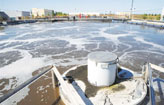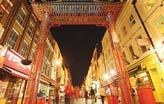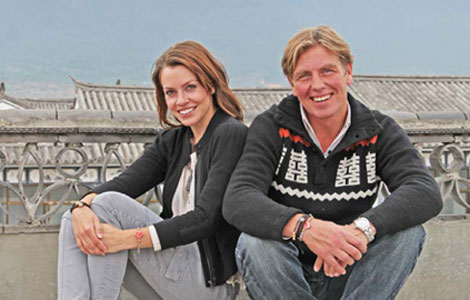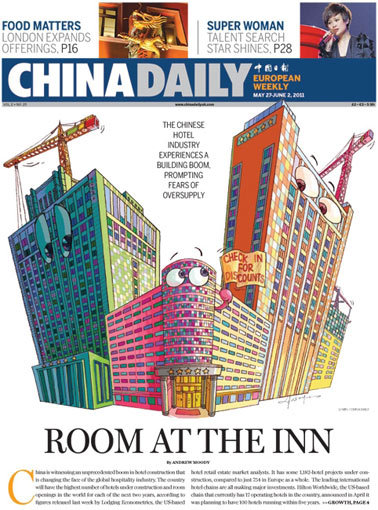Learning from the past
Updated: 2011-05-27 11:22
By Andrew Moody (China Daily European Weekly)
As British foreign secretary, he was also involved in some of the key final discussions with the Chinese leadership before the handover of Hong Kong in 1997.
He is one of the few European politicians surviving to have met chairman Mao Zedong.
"I remember two things, neither of which are particularly important. He had liver spots like a lot of old people do, although I don't have much of them myself, and so when you shook hands with him, you were conscious these were the hands of an old man. And, secondly, he spoke Chinese in an extraordinary way. His voice was constantly going up and down. It wasn't off putting, just slightly strange."
Hurd's latest book, Choose Your Weapons, examines how British foreign secretaries since the 18th century have grappled with politically delicate issues, such as US President Barack Obama's decision to swoop in to Pakistan and kill Osama bin Laden.
"I don't think it would have been right to bring him back for trial in New York. There would have been great publicity and he would have defended himself. I think it was an exceptional case. There was no real doubt about his identity nor his responsibility. I think abnormal people produce abnormal treatment. It shouldn't be the rule though," he says.
Hurd, who retains a calming understated authority, accepts the world is entering a new foreign policy arena. But he doesn't believe the rise of China inevitably means a G2 world in which the United States and China carve up the global interests between each other.
"I think the world is becoming much more multipolar. There are not just one or two superpowers but a cluster of powers, some stronger, some weaker. They have got to live, accommodate and understand each other, and that has always been very difficult in the past," he says.
He doesn't believe the megaphone diplomacy used by US congressmen last year to browbeat China over the value of the yuan is the right way to deal with the Chinese.
"I think they have stopped browbeating because they have (learned) the hard way it isn't very profitable," he says.
Hurd, whose father and grandfather were both members of parliament and now has a son in David Cameron's Coalition government, last visited China in 2008.
"I went on an organized tour and I was one of the speakers. I went to Kunming (Yunnan province in Southwest China) and I quite enjoyed that. I was impressed this time in the change of the infrastructure, the roads, the ports, the railway stations, all that kind of thing had been transformed," he says.
It was very different from when Hurd was first in China in the mid-1950s. The United Kingdom, which had economic interests relating to Hong Kong, was one of the first major countries to recognize the People's Republic of China, in January 1950, but still operated from a legation rather than a full embassy.
"The first sign we had that our status had improved (being accepted as a full diplomatic entity) was that we were asked to the state circus - no explanation, but the invitation came. We made sure we went," he says, laughing.
He spent some of the time in Beijing learning Mandarin and practicing the calligraphy.
"I have lost it now, but I can still speak a bit of it. I remember being slightly discouraged. It was a time when they were constantly simplifying the characters and removing a lot of the strokes. You did your homework one night, and the next day discovered you didn't need to know that anymore," he says.
"I thoroughly enjoyed my two years in Beijing. It was like being in a different world and that was quite stimulating."
Hurd returned to China on the famous Heath visits, which followed US president Richard Nixon's historic 1972 trip. These visits were all key parts in China's opening-up to the rest of the world.
As foreign secretary it was customary for him to meet his Chinese counterpart at the United Nations General Assembly in New York.
"Those were the Hong Kong discussions, mainly about politics and (last Hong Kong governor) Chris Patten's constitutional proposals. Later they became discussions about the financing of the airport (a joint venture project between the UK and China)," he says.
Hurd, who was speaking before the recent death of his daughter-in-law in New York, is something of a historian on China-UK relations, writing The Arrow War in the 1960s about the second Opium War, which ended in defeat for China.
E-paper

Tapping into the future
Foreign companies are investing in China's water industry as many predict a growing profit margin.
Headhunters ride on growth
Commercial property rides wave
Learning from the past
Specials

Cuisine central
London's Chinatown is helping diners appreciate full palate of Chinese food

Tying the knot
Danish couple's high-end macrame export business takes off in the mountains of Yunnan.

Truly a super woman
Li Yuchun first came to prominence in 2005 as the Super Girl winner, and since then has become an international star.
